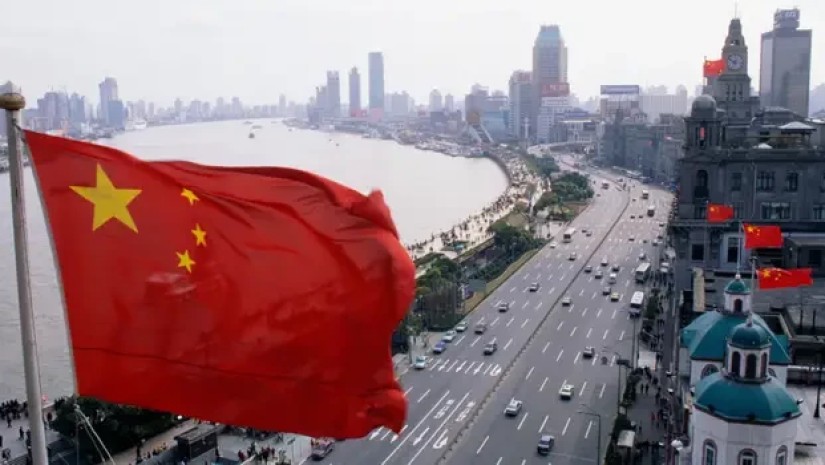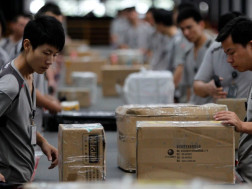China’s massive manufacturing sector has contracted once again amid weak demand, fueling calls for stronger policy support to boost growth.
The official manufacturing Purchasing Managers’ Index (PMI) dropped to 49.5 in October from 50.2 in September, according to China’s National Bureau of Statistics (NBS) on Tuesday. That missed an estimate of 50.2 from a Reuters poll of analysts.
The non-manufacturing PMI, which covers the services and construction industries, fell to 50.6 this month, the lowest level since China lifted its Covid-19 restrictions in December 2022.
The PMI is a monthly indicator of economic activity. A reading above 50 indicates expansion, while anything below that level shows contraction.
Fewer working days in October due to the Golden Week holiday, which spanned September 29 to October 6, affected the manufacturing PMI, according to the NBS. But the contraction also underscores the fragility of the world’s second largest economy.
China’s economy is grappling with mounting challenges, ranging from weak consumer spending and a deepening property crisis to subdued global demand.
The manufacturing sector, which accounts for 28% of gross domestic product, had contracted for five straight months after March. It finally expanded in September, fueling hopes that the economy had bottomed out.
“The unexpected decline of manufacturing PMI shows the recovery in China is a bumpy road as domestic demand is still quite weak,” said Zhiwei Zhang, president and chief economist for Pinpoint Asset Management.
The NBS survey showed that new factory orders declined in October from the previous month, pointing to a drop in demand. The employment sub-index also dropped, indicating that factories had hired fewer workers.
The drop in the non-manufacturing PMI, meanwhile, suggests that the pent-up demand for travel and gatherings diminished quickly after the Golden Week holiday, according to Nomura analysts.
Overall, “the weak PMI reinforces the case for stronger fiscal policy support,” Zhang said.
Beijing has ramped up stimulus measures in recent weeks
China’s top parliamentary body approved a 1 trillion yuan ($137 billion) sovereign bond issue last week to stimulate the economy. Authorities said the issuance was intended for infrastructure projects in disaster-hit areas of the country.
Property easing measures are also being rolled out nationwide. More cities, including Hangzhou and Liuzhou, have loosened restrictions on homebuying in recent weeks.
On Monday, President Xi Jinping kicked off a key financial policy meeting in Beijing, the first gathering of its kind in six years, to find ways to spur growth and resolve financial risks, including mounting debt among local governments.
“De-risking local governments will require a combination of proactive fiscal and accommodative monetary policies going forward,” Zhaopeng Xing, senior China strategist for ANZ Research, said in a Tuesday research report.
He expects the People’s Bank of China to cut the reserve requirement ratio — the percentage of deposits that commercial banks must keep as reserves — by 50 basis points in the fourth quarter, which could inject 1.2 trillion yuan ($164 billion) into the financial system, CNN reports.























